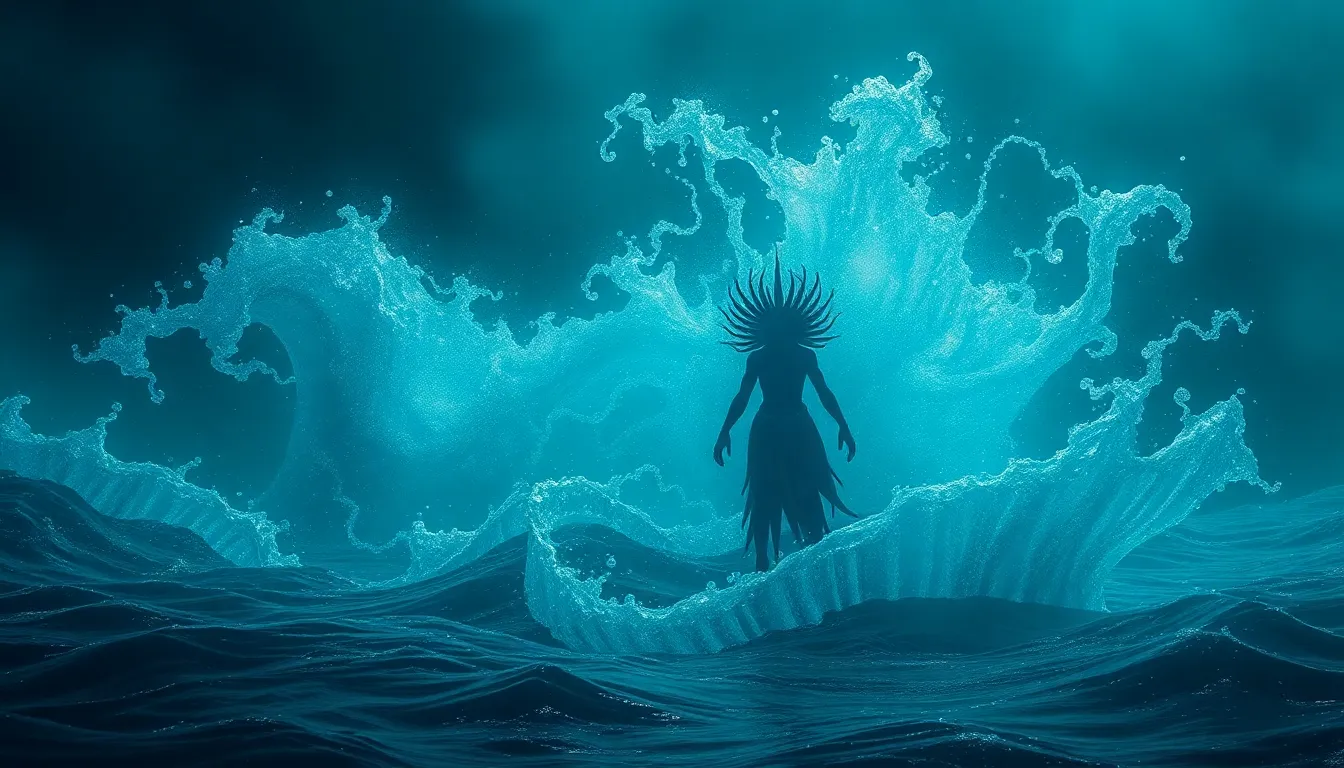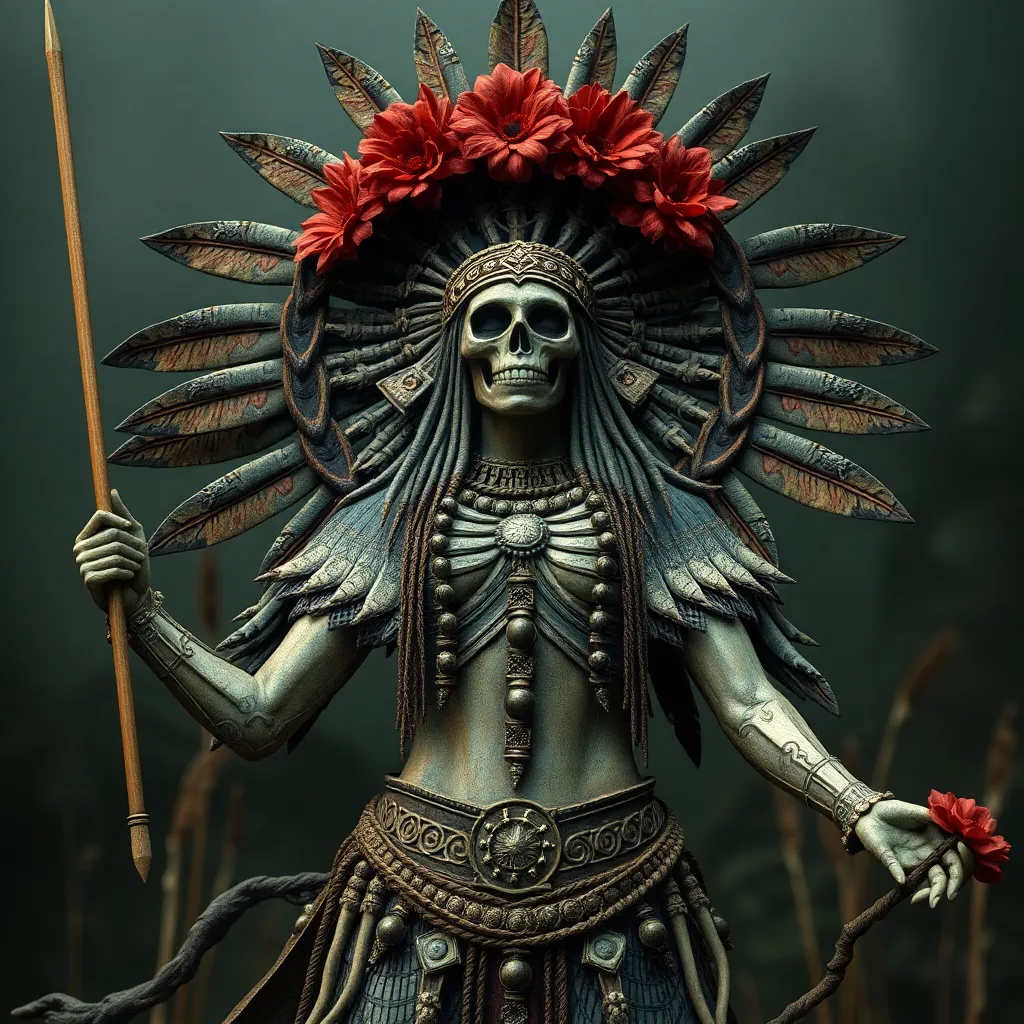The Ocean’s Guardians: Exploring Water Spirits in Indigenous Cultures
I. Introduction
Water spirits occupy a significant place in the belief systems of various indigenous cultures around the world. These entities, often viewed as guardians of aquatic realms, embody the deep connection that many indigenous communities have with their natural environments. The importance of water extends beyond mere sustenance; it is intertwined with cultural beliefs, rituals, and practices that reflect a holistic worldview.
This article explores the role of water spirits as protectors of oceans and other bodies of water, emphasizing their guardianship over marine life and ecosystems. By examining the cultural significance of these spirits, we can gain a deeper understanding of how indigenous peoples perceive their relationship with water and the environment.
II. The Role of Water Spirits in Indigenous Cosmology
Water holds a central place in the cosmologies of indigenous cultures. It is often viewed as a source of life, healing, and spiritual energy. Water spirits are seen as vital entities that maintain the balance of aquatic ecosystems, serving as protectors of fish, plants, and other marine organisms.
These spirits are not merely mythological beings; they are integral to the ecological and spiritual understanding of indigenous peoples. Stories and myths surrounding water spirits often encapsulate important teachings about respect for nature and the interconnectedness of all living things. Some common themes include:
- Guardianship of marine life
- Messages of respect and sustainability
- Transformation and renewal associated with water
III. Regional Variations of Water Spirits
Water spirits manifest differently across various cultures and regions, each reflecting unique environmental interactions and spiritual beliefs. Here are some prominent examples:
A. North America: The Significance of Water Spirits in Native American Tribes
In many Native American tribes, water spirits are revered as powerful entities that embody the essence of rivers, lakes, and oceans. For instance:
- The Ojibwe people speak of the water spirit known as Water Panther, a guardian of lakes.
- The Lakota recognize Wakinyan, a spirit associated with storms and water.
B. Oceania: The Role of Sea Deities in Polynesian Cultures
Polynesian cultures have a rich tapestry of sea deities and water spirits. Notable examples include:
- Kanaloa, the Hawaiian god of the ocean.
- Rongo, associated with fertility and the sea, revered in various Pacific Island cultures.
C. Africa: Water Spirits in Various African Indigenous Beliefs
In Africa, water spirits are often linked to rivers and lakes, serving as protectors of water resources. Examples include:
- The Mami Wata spirits, known for their beauty and power, are worshipped in various West African cultures.
- In the Zulu culture, Ingwavuma is a river spirit that embodies the essence of water and fertility.
IV. Rituals and Practices Associated with Water Spirits
Indigenous cultures engage in various rituals and practices to honor water spirits, reflecting their respect and recognition of the significance of water. These practices include:
A. Ceremonies Honoring Water Spirits
Ceremonies often involve offerings and prayers aimed at seeking blessings or guidance from water spirits. These rituals may take place at specific sites, such as rivers, lakes, or ocean shores.
B. Offerings and Traditional Practices to Appease or Seek Guidance from Water Spirits
Communities may make offerings of food, flowers, or crafted items to water spirits, believing these gestures foster a harmonious relationship with the aquatic world.
C. Seasonal Festivals and Their Connection to Marine Life
Seasonal festivals often celebrate the cycles of marine life, coinciding with fish migrations or the changing seasons. These events reinforce community ties and cultural identity.
V. Water Spirits and Environmental Stewardship
Indigenous knowledge regarding water spirits is closely tied to principles of environmental stewardship. This knowledge emphasizes sustainable practices that respect the integrity of marine ecosystems.
A. Indigenous Knowledge and Sustainable Practices Regarding Ocean Conservation
Many indigenous communities possess traditional ecological knowledge that informs their practices related to fishing, foraging, and conservation. This knowledge often emphasizes:
- Respect for seasonal cycles
- Minimal impact harvesting techniques
- Community-led management of resources
B. The Relationship Between Water Spirits and Environmental Ethics
The belief in water spirits fosters a deep sense of responsibility for the environment. This ethical framework guides many indigenous peoples in their interactions with nature, promoting conservation and sustainable use of resources.
C. Case Studies of Indigenous-Led Conservation Efforts
Indigenous-led initiatives often prioritize the protection of marine environments, such as:
- The creation of marine protected areas by indigenous communities to safeguard biodiversity.
- Collaborative projects that integrate traditional knowledge with modern conservation efforts.
VI. Contemporary Challenges Facing Water Spirits and Indigenous Cultures
Despite the rich cultural significance of water spirits, indigenous communities face numerous challenges that threaten their traditions and the marine environments they protect.
A. Climate Change and Its Impact on Marine Ecosystems
Climate change poses significant risks to marine ecosystems, impacting fish populations and water quality. These changes undermine indigenous practices and the spiritual beliefs associated with water.
B. The Erosion of Indigenous Knowledge and Cultural Practices
Modernization and globalization contribute to the erosion of traditional knowledge and practices, threatening the transmission of cultural heritage related to water spirits.
C. Efforts to Revitalize Traditions and Protect Water Spirits
Many indigenous groups are actively working to revitalize their traditions, including:
- Educational programs that teach younger generations about their cultural heritage.
- Community gatherings to share stories and practices related to water spirits.
VII. The Intersection of Modern Science and Indigenous Beliefs
Collaboration between indigenous communities and scientists is increasingly recognized as essential for effective conservation strategies.
A. Collaboration Between Indigenous Communities and Scientists
Partnerships between indigenous peoples and scientists can enhance conservation efforts, combining traditional ecological knowledge with scientific methodologies.
B. Integrating Traditional Ecological Knowledge with Modern Conservation Strategies
By integrating traditional ecological knowledge into modern conservation practices, both communities and scientists can benefit. This integration promotes resilience in the face of environmental changes.
C. Examples of Successful Partnerships
Successful partnerships demonstrate the value of collaboration, such as:
- Joint research projects focused on sustainable fishing practices.
- Conservation initiatives that respect indigenous land management practices.
VIII. Conclusion
Water spirits play a vital role in the cultural beliefs and practices of indigenous peoples, embodying their deep connection to the oceans and waterways. Recognizing the significance of these spirits fosters a greater appreciation for the wisdom of indigenous cultures regarding environmental stewardship and conservation.
As we face pressing environmental challenges, it is crucial to honor and respect indigenous knowledge and practices in the quest for sustainable ocean management. By doing so, we not only preserve cultural heritage but also protect the delicate balance of marine ecosystems for future generations.
This is a call to action for communities, governments, and individuals to support indigenous-led initiatives and ensure the safeguarding of both cultural and environmental treasures.



